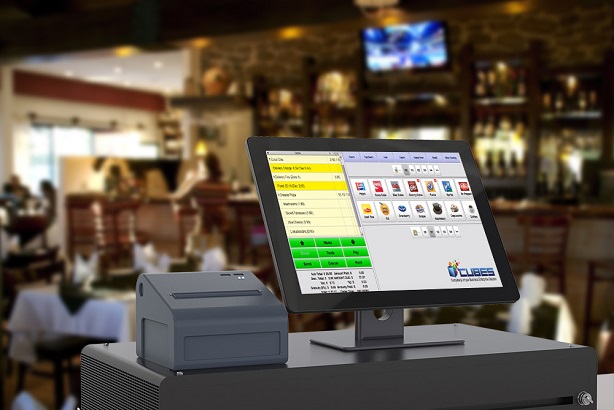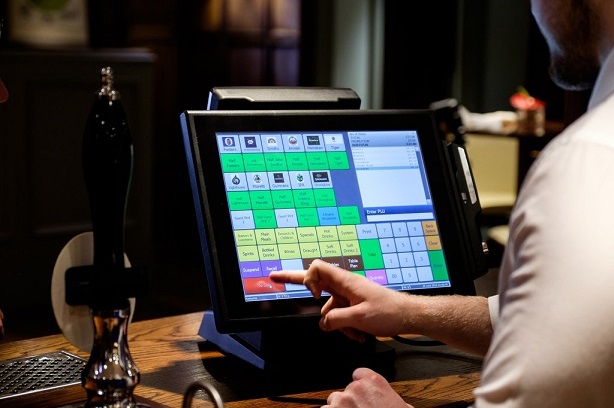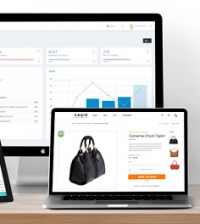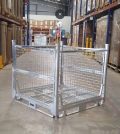How to Choose the Right POS System for Your Business
POS (point-of-sale) systems are essential for today’s successful business operations. They assist you in accepting and securely processing a variety of payment options. In actuality, 68 per cent of companies use a POS system to record new sales at the checkout counter.
However, point-of-sale systems of today are much more versatile than just accepting payments. They can assist you with all facets of your organisation, including invoicing, inventory, accounting and reporting.
Contents
What Is a POS System?

Simply put, the point of sale is the location of sales. It would typically be a cash register, except POS systems are mobile today. They’re flexible, cloud-based networks with a wide range of commercial capabilities, making accepting money on the go simple.
Why Do You Need One?
With a point-of-sale system, you can accept the kind of payments your consumers prefer. By doing this, clients’ shopping experiences are streamlined and made more convenient. Sales increase and users are pleased as a result.
In this regard, having a cutting-edge point-of-sale system is essential for your business to succeed. Additionally, POS lends credibility to your company, making you more competitive in the market. It also simplifies sales tracking and analysis.
A POS system is necessary for every company with a physical checkout procedure. These retailers include retail stores, restaurants, entertainment and hospitality, service providers and on-the-go merchants.
Which POS Is the Best to Use for Business?
Now that you know the basics of POS and who they’re for, you need to choose the right solution for your company. When searching for a complete POS system online you must consider these key factors to find the best option.
Determine Your Business Needs
It can be tempting to start your search for POS providers right once, but it’s best to conduct internal research and determine your needs first. By doing this, you will be able to identify what you require (and do not need), making your search much more manageable. When determining your needs, take a look at the following areas:
The Flaws of the Current System
If you currently use a POS system and want to replace it, start by evaluating its drawbacks. What elements does it lack? What are some things you wish you could do with it? What bothers you the most?
When looking for solutions on the market, take notice of the answers to these questions and use them. Talking to your team about your POS system is also beneficial. Ask your associates and cashiers the questions from above, and then record their responses.
Hardware
If you already have a setup and are satisfied with your POS hardware, focus on solutions that fit it. Point-of-sale equipment can be a significant investment. Consider that your point of sale system is an iPad. In this situation, you should search for iPad-friendly solutions.
Make sure to look for a POS system online that is compatible with items like printers, drawers, credit card terminals, and barcode scanners by taking note of them.
Software or Apps You’re Using
The same is true of any programs or software you may be using. If you’re satisfied with your CRM, e-commerce platforms, accounting software, etc., make sure the point of sale system integrates with those programs.
Your Future Needs
It’s necessary to be aware of your current demands, but you should also consider your long-term requirements. How does the roadmap for your company look? Do you intend to grow or undertake new endeavours in the upcoming months or years? You will require a solution that can change and advance along with you.
Let’s imagine you have plans to add new sites soon. If so, ensure your POS system allows you to manage many stores easily and supports multi-store functionality. If you need to update your client loyalty program and add new benefits, make sure your POS includes loyalty features or integrations to enable this if that is the case.
Your Budget
You require a solution that works inside your budget for obvious reasons. Retail POS software and restaurant POS systems come in various price ranges and billing plans.
What Are the Most Important Key Features to Look for in a POS?

Once you clearly understand what you require in a point-of-sale system based on the information you’ve acquired above, here’s a list of the various features and functionalities you should assess in your POS system to simplify the process.
Checkout Process
Checkouts are the focal point of the point-of-sale process, so ensure that your POS system can support the experience you wish to offer.
Catalog Management
You probably have a menu or catalogue that details your products, whether selling tangible things or services. Choose a POS system that makes it simple to track and manage your catalogue while making your selection.
Multi-Channel Capabilities
Choose a POS solution that can link with your other channels, whether you sell through an online store, online marketplaces, or social media. By doing that, you can track and manage your sales from a single location.
Customer Management
Your choice of POS system online should ideally assist you in expanding and managing your consumer base. Some characteristics to consider are:
- Ability to collect client information. If customer management is vital to you, get a POS system that enables you to collect customer data at the point of sale.
- Communication. It would also be helpful to have a point-of-sale system that allows you to email your customers.
Reporting and Analytics
You should be able to make better business decisions using the information and insights your POS system provides. Pick a solution that offers:
- Sales reports (the number of sales made over a specific period or by channel/store)
- Inventory and catalogue reports (your best-sellers, slow-movers, etc.)
- Customer feedback (your top spenders, repeat customers, inactive shoppers, etc.)
Security and Compliance
The information about your customers and your business should be safe with your POS system. Ensure that any solutions they provide are current and in line with all applicable rules and regulations. Additionally, you might want to inquire about the kinds of data the POS business gathers and how they use it.









